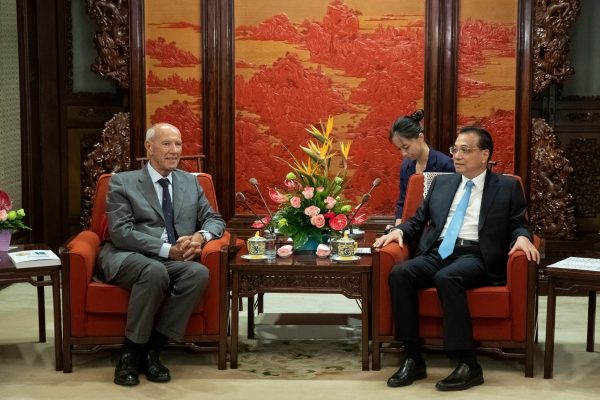China has made profound efforts to improve its IP system, including the establishment of IP Courts in 2014 and Internet Courts in 2017. But 2013–15 research commissioned by the World Intellectual Property Organization (WIPO) demonstrates that in most cross-border online IP infringement cases, the plaintiff chooses to sue the defendant in the plaintiff’s jurisdiction — IP holders rarely bring cases in the infringer’s country.
Suing a foreign infringer in the IP right holder’s country may not be effective. This is because, if the defendant has no assets for enforcement in that jurisdiction, the IP right holder has to apply to recognise and enforce the judgment at a court located in a place where the defendant has assets. It is particularly difficult to recognise and enforce foreign judgments related to IP in China. Chinese courts have recognised and enforced some foreign judgments based on the principle of reciprocity, but never for IP-related cases. And this doesn’t look like changing soon.
The Supreme People’s Court of China and the Supreme Court of Singapore recently concluded a Memorandum of Guidance on Recognition and Enforcement of Money Judgments in Commercial Cases. Article 8 of this Memorandum explicitly indicates that China will not enforce any Singaporean judgments related to IP rights. Similarly, it would be too optimistic to expect Chinese courts to recognise and enforce US IP infringement judgments under the principle of reciprocity.
The recent Chinese E-Commerce Law, effective on 1 January 2019, aims to enhance rule of law in the online shopping market. What accountability will this Law provide?
Article 44 of the Law states that if an e-commerce platform provider knows or should know that a seller doing business over its platform involves infringement on IP, and the platform provider fails to take necessary measures, the platform provider and the seller shall be jointly and severally liable.
The Law also provides ‘notice and takedown’ provisions. If an IP holder informs the online platform provider about counterfeit products that are sold on its platform, the platform provider should take necessary measures including taking down the relevant listings. But an issue remains: if a platform provider takes down IP-infringing products upon receiving a valid notice, in what circumstances would this platform provider be held liable?
In 2010, a US court found the e-commerce platform eBay was not liable for the actions of a seller on the site that sold counterfeit Tiffany and Co. jewellery. Although eBay managed a ‘notice and takedown’ system, its general knowledge of counterfeiting on its website was found to be insufficient to prove liability. Tiffany and Co. needed to identify an online operator that eBay knows or has reason to know is engaging in trademark infringement. This case shows that the victims of IP infringement will have to bear a high burden when arguing their cases.
In a more recent case between the Hong Kong-based Chinese e-commerce giant Alibaba and the California-based sunglasses manufacturer Spy Optics, it was alleged that Alibaba enabled counterfeiters to sell fake products online. Spy Optics used Alibaba’s ‘notice and take down’ system over 12,000 times to report violations and Alibaba responded by removing ‘thousands’ of infringing listings from its websites. Alibaba then moved to dismiss the suit based on the eBay precedent.
Despite the fact that Alibaba had removed multiple infringing listings, Spy Optics maintained that more infringing products were added daily and that Alibaba had failed to eliminate repeat infringers from its websites. Unlike the eBay case, Spy Optics alleged an online operator had infringing products removed, but Alibaba allowed this operator to continue to list other infringing products on its website. This fact established that Alibaba continued to supply its services to an identified entity it knew was engaging in trademark infringement. Consequently, the judge denied Alibaba’s motion.
It remains to be seen how Chinese courts will consider the impact a ‘notice and takedown’ system may have on the ‘joint and several liability’ between the platform provider and online seller. Providing a forum to foreign IP holders is valuable, but it is not a panacea to the IP dispute between China and the United States.
Jeanne Huang is Associate Professor at the University of Sydney Law School.

